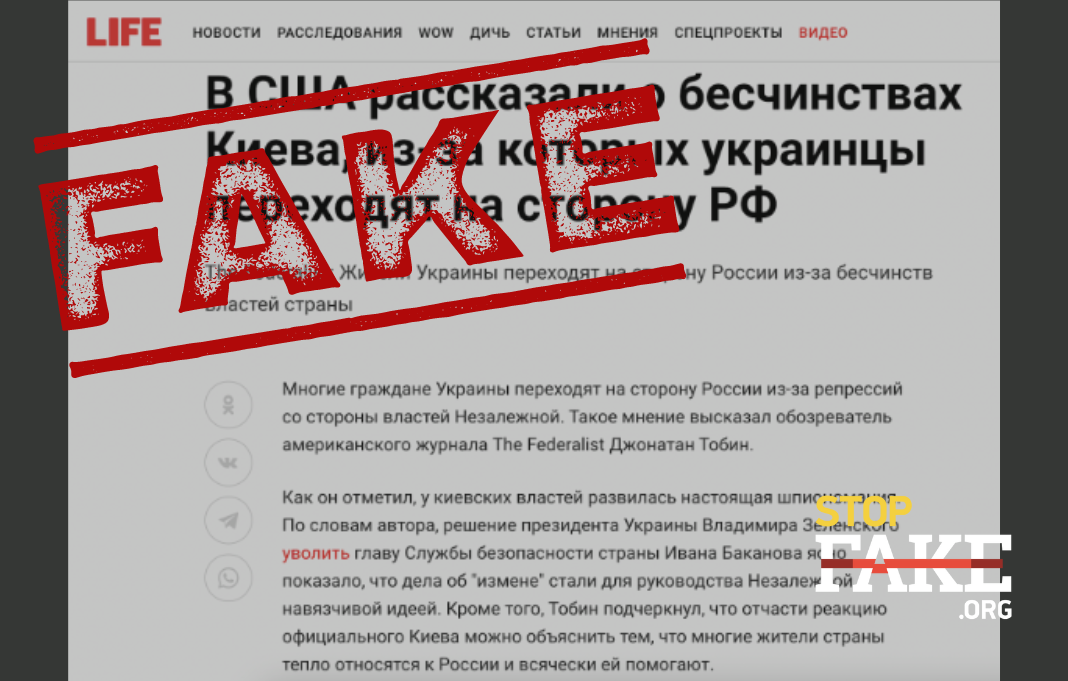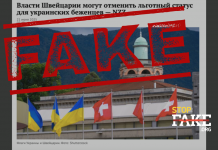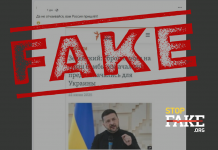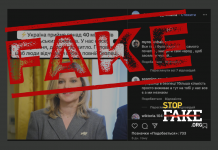A recent article in the American conservative online magazine The Federalist is made up of a series of manipulative theses that in their totality eventually compose a propaganda narrative about civil war in Ukraine. According to a May 2022 opinion poll conducted by the respected Kyiv International Institute of Sociology (KIIS) on the perceptions of the Russia-Ukraine war among Ukrainian citizens, only 1% of Ukrainians were found to have a “predominantly pro-Russian position”. Another May 2022 survey also conducted by KIIS showed that only 2% of Ukrainians have a positive attitude towards Russia, while an overwhelming 92% have a negative attitude.
Using the Federalist story as their source, Russian media have been disseminating fakes claiming that the majority of Ukrainians are going over to the Russian side because of the “abuses” of the Kyiv regime. This is allegedly motivated by the “warm attitudes many Ukrainians have towards Russia and help it in every possible way” because of the “spy mania” allegedly spreading among Ukrainian authorities.
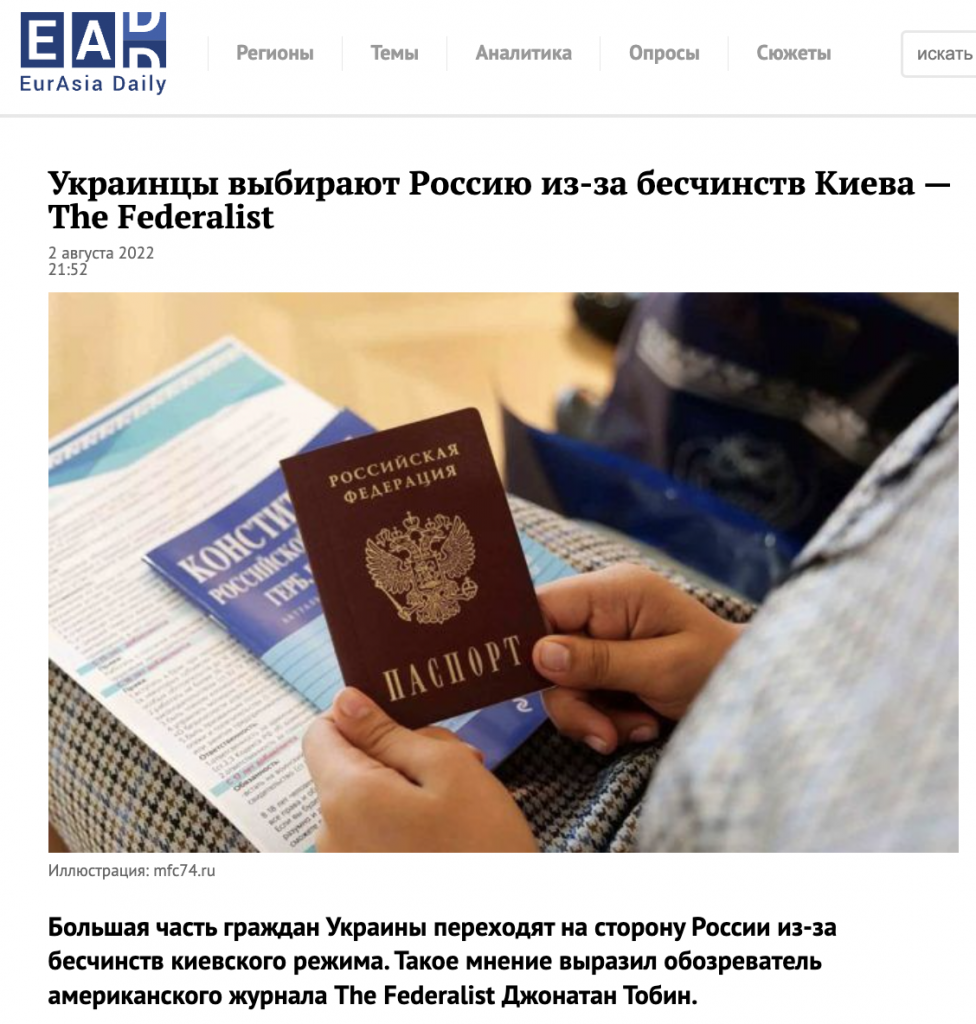
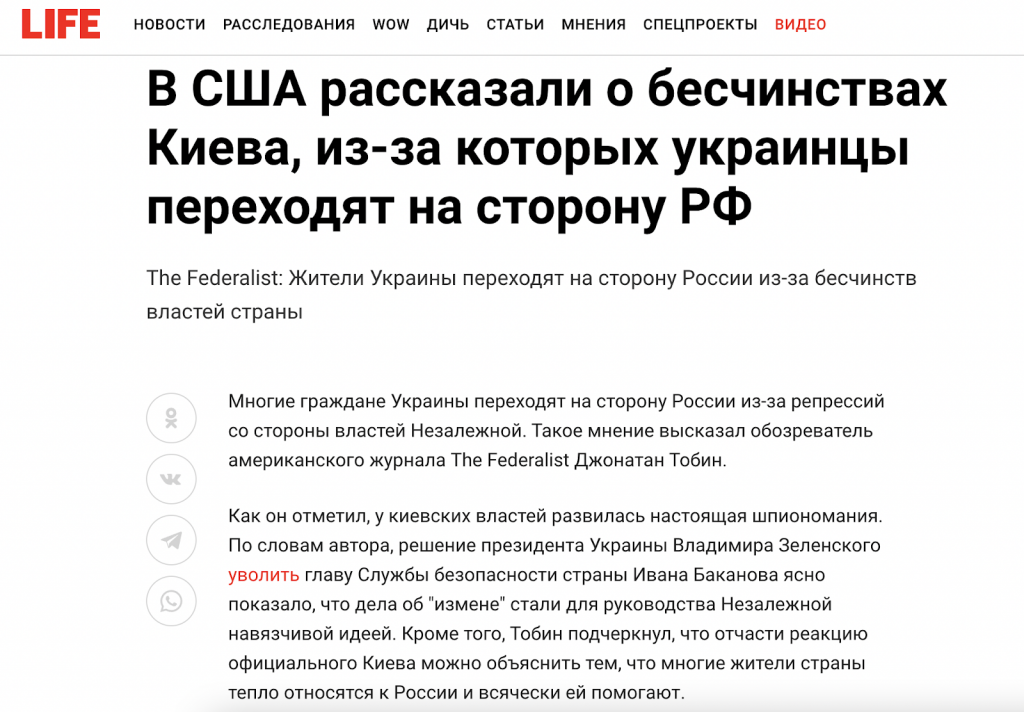
The conservative Federalist website article entitled As Ukrainians defect to Russia, we should ask whether our billions are saving democracy or aiding corruption by Jonathan Tobin, the editor-in-chief of the Jewish News syndicate provided Russian media with considerable fodder for their claims that Ukrainians are going over to the Russian side. Tobin does not often write about Ukraine, but when he does, his articles are devoted to criticism of the Ukrainian government and issues related to western support for Ukraine. For example, in his Jewish News Syndicate column Nationalism goes back into fashion with certain exceptions, Tobin accuses Ukrainian President Volodymy Zelensky of falsifying history with the aim of covering up Ukrainians’ anti-Semitic past. In another column entitled Why does the world care about what Israel does about Ukraine? Tobin talks about how criticism of Israel’s vague position regarding the war in Ukraine is also linked to anti-Semitism.
As for The Federalist magazine itself, the far right publication has been repeatedly accused of spreading false information during the coronavirus pandemic, as well as during the 2020 US presidential election. The independent online Media Bias/Fact Check fact-checking site rates The Federalist as “questionable and far-Right biased based on story selection and editorial positions that always favor the right and promotion of propaganda, conspiracy theories, and numerous failed fact checks.”
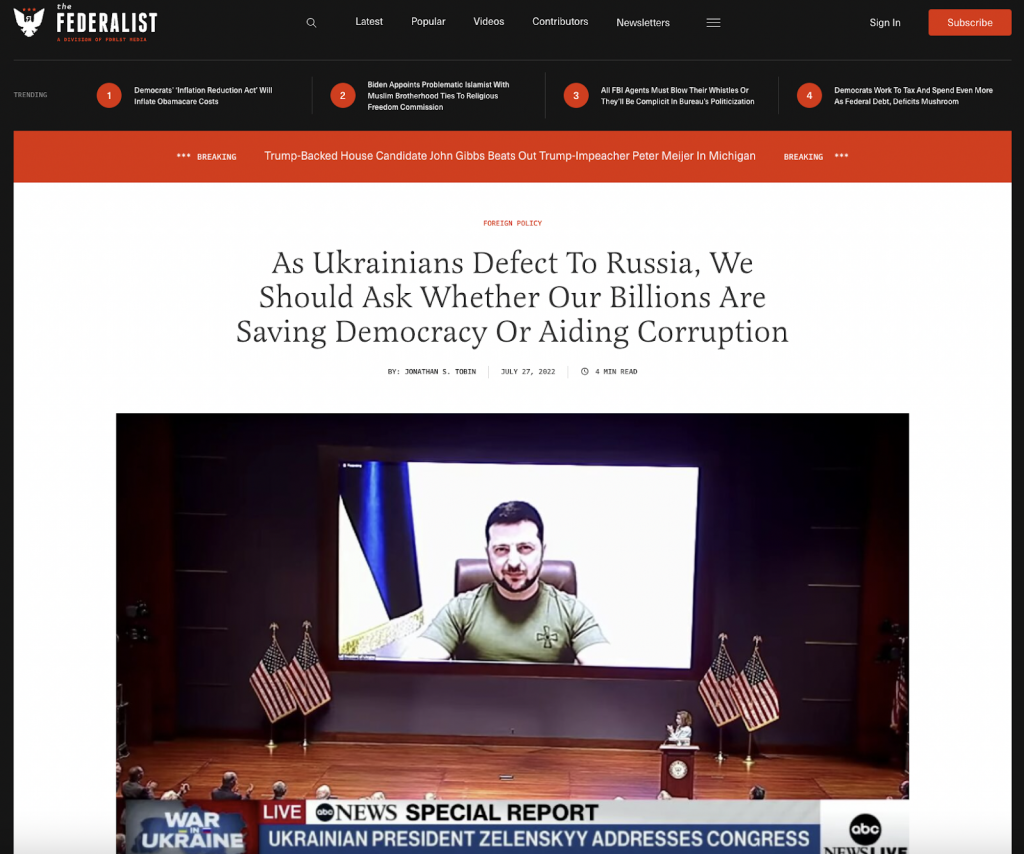
The Tobin article is composed of a series of manipulative theses that ultimately amount to a propaganda narrative straight out of the Kremlin playbook: about a civil war in Ukraine; the imprudence of American military aid to Ukraine, because the monies allocated to help Ukraine will allegedly be stolen by the “corrupt Kyiv authorities; the majority of Ukrainian citizens are sympathetic to Russia and help Moscow and because of this they are persecuted by Ukrainian authorities.
To support his claims, Jonathan Tobin links to a New York Times article about the dismissal of Ukrainian Security Service chief Ivan Bakanov and Prosecutor General Iryna Venediktova and claims that “the substance of the story was that the sympathy and support for the Russians among a not insignificant portion of the Ukrainian population and members of the security services has damaged the war effort.”
A nation of spy-catchers: fear of saboteurs has Ukrainians on edge is another New York Times article that Tobin references in his Federalist opinion piece. The Times story focuses on the concern about the activities of sabotage groups in Ukraine. According to the Ukrainian police more than 200,000 incidents of alleged suspicious activity were reported via a special app designed for that purpose. Several people recall how they had to undergo police checks because of suspected sabotage suspicions.
Such suspicions, claims Tobin, are the reason so many Ukrainians are helping the Russians: “… this vast security state has been empowered by the war to turn its malevolent gaze on Ukrainian citizens — whether guilty of sympathy for Moscow or not.” Therefore, “many Ukrainian officials, including those who were employed by the prosecutor’s office, remained behind in Russian-occupied territory and are now working for Moscow.”
The New York Times articles however, do not draw such conclusions, nor do they contain any information that can be used to argue that a significant part of the Ukrainian population supports or sympathizes with Russia, as Tobin does. Neither of the articles contain any information about repressions against Ukrainians which then make them turn towards Russia. High incidents of suspicious behavior reported through a special app in March of this year are certainly not evidence of mass support for Russia’s actions amongst Ukrainians. 200,000 unverified reports of alleged suspicious activity do not mean that they were all cases of sabotage and that all the people who were investigated for sabotage by Ukrainian authorities became embittered and as a result began supporting Russia.
As for the law enforcement officials now working for Moscow that Tobin refers to, the New York Times cites Ukrainian President Volodymyr Zelensky who said that 651 cases of high treason were opened against law enforcement personnel: “Such an array of crimes against the foundations of the national security of the state and the connections detected between the employees of the security forces of Ukraine and the special services of Russia pose very serious questions to the relevant leadership.”
Although the number of cases filed might look impressive, without context, such data is misleading. Jonathan Tobin ignores the fact that Ukraine’s Security Service has 27,000 employees and the National Police more than 134,000 employees. At the end of May, First Deputy Interior Minister Yevhen Yenin said that the number of collaborators in the ranks of law enforcement agencies was barely 1%.
Tobin’s assumption that such a large number of collaborators among law enforcement officials is associated with “persecution” in Ukraine is not at all true. While he draws this conclusion on the basis of the NYTimes A nation of spy-catchers: fear of saboteurs has Ukrainians on edge article, the article itself contains no information about “harassment” or “repression” against law enforcement officers. The New York Times article focuses on the issue of combating sabotage groups, and the general panic about their activities in the first months of the war.
Again, Jonathan Tobin ignores the fact that even before the Russian invasion, for years Russia cultivated an extensive network of agents in Ukraine, including among Ukrainian law enforcement officials. Most of the people accused of collaborating were probably recruited long before February 24th.
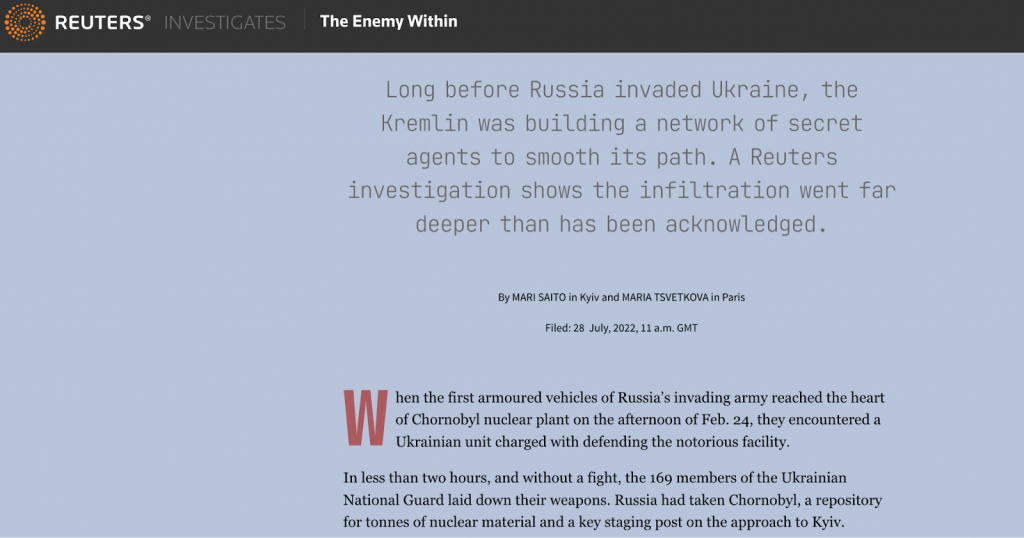
Towards the end of his article for the Federalist, Jonathan Tobin concludes that what is happening in Ukraine is in part a civil war. “… The ability of the Russians to get so many Ukrainians to sympathize with or aid their assault on Ukraine illustrates that what is going on is, in part, a civil war as well as a foreign invasion” Tobin writes.
Kremlin propaganda is actively trying to impose a narrative about an internal confrontation between the citizens of Ukraine, and since 2014 has been calling what is happening in the Donbas a “civil war” and a “genocide of Russian speakers”. StopFake has repeatedly refuted these reports in its materials: Fake: Majority of Ukrainians consider Donbas conflict a civil war, Fake: The UN Court rules civil war underway in Ukraine, Italian TV fakes about the war in Donbas.
According to a May survey by the Kyiv International Institute of Sociology (KIIS) on how Ukrainian citizens perceive the Russian-Ukrainian war, only 1% of Ukrainians have a “predominantly pro-Russian position.” Another KIIS poll, also conducted in May, showed that only 2% of Ukrainian citizens have a positive attitude towards Russia, while 92% have a negative attitude. Furthermore, Ukrainians remain united on the issue that it is impossible to make concessions to the aggressor. According to a KIIS poll conducted between July 6 and 20, 84% of Ukrainians are not ready for territorial concessions in to end the war.


